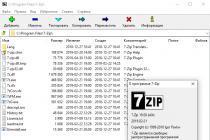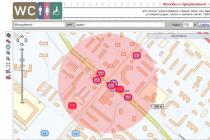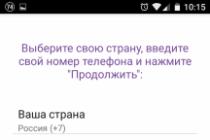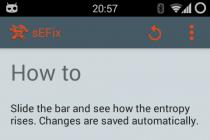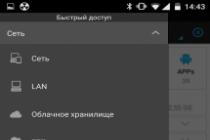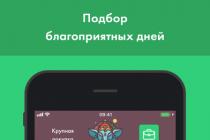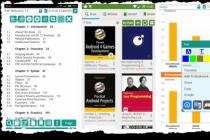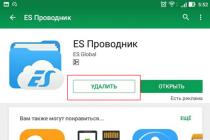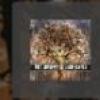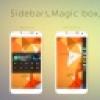MOSCOW, June 20, 2018. 26% of Russians demonstrated a high level of basic competencies in the digital environment. The digital literacy index * was 52 p.p. out of 100 possible. At the same time, Russians tend to be frivolous in the field of information protection: only 38% of respondents make backup copies of their own data, and 44% of users do not know how to do the right thing if they receive a letter from a friend with a virus.
This is evidenced by the results of a special research project of the NAFI Analytical Center “Digital Literacy for the Economy of the Future”. Within the framework of the project, all-Russian polls of the population ** were carried out, as well as a desk study of world practices for assessing digital competencies of the adult population.
Russian digital literacy index
Digital literacy refers to the basic set of knowledge, skills and attitudes that enable a person to effectively solve problems in a digital environment.
Components of digital literacy:
- Information literacy
- Knowledge about the specifics of information and its various sources
- Skills for finding relevant information and comparing it
- Attitudes regarding the benefits and harms of information
- Computer literacy
- Knowledge of the computer device and its functions
- Skills in using a computer and similar devices
- Attitudes regarding the role of the computer in daily practice
- Media literacy
- Knowledge about media content and its sources
- News search and fact-checking skills
- Attitudes regarding the reliability of information communicated through the media
- Communication literacy
- Knowledge about the specifics of dialogue in digital communication
- Skills of using modern means of communication
- Attitudes regarding ethics and norms of communication in the digital environment
- Technological innovation
- Knowledge of current technological trends
- Skills of working with gadgets and applications
- Attitudes regarding the benefits of technological innovation
The digital literacy index was calculated as the average value for all the specified components and amounted to 52 pp. out of 100 possible. 26% of Russians demonstrated a high level of basic competencies in the digital environment (the share of respondents with an Index of 90 pp and above).
Russians demonstrate the most developed competencies in the field of media literacy (the subindex is 65 pp). The lowest index is in the field of computer literacy (sub-index is 46 pp).
In Moscow and St. Petersburg, as well as in cities with a population of over one million, the index is 59 pp, while in the countryside it is almost 10 pp. below - 49 p.p. The higher the level of education a person has, the higher their level of digital literacy. Also, the level of digital literacy depends on age - the younger people are, the higher their level of digital literacy. No significant gender differences were found (53 pp among men and 50 pp among women).
In general, Russians in relation to digital competencies are characterized by stable sets of basic skills with a lack of knowledge and ethical attitudes (the sub-index for skills is 55 pp, for attitudes - 53 pp, for knowledge - 47 pp).
Information literacy level
One of the signs of a sufficient level of knowledge is the ability to draw conclusions about a fact based on different sources. The majority of Russians are serious about analyzing information and prefer to study various resources (74%). In terms of skills, 81% easily find the information they need on the Internet (among those who have a computer).
The situation with the ethical side of information literacy is not so straightforward. This indicator shows how deeply a person reflects on the information found. 45% do not think about the benefits and dangers of the information they receive on the Internet.
Computer literacy level
The main features of a computer literate person are an understanding of the technical components of a computer and the ease of use of a device regardless of platform, as well as an understanding of the purposes of using gadgets.
78% of users in Russia find it easy to use a computer. However, just under half of people over 55 (43%) experience difficulties. For comparison, only 10% of people 18-24 years old and 12% of people 25-34 years old find working on a computer difficult. It is easier for people with higher education (85%) than for those with a lower level of education (74%).
Only 59% of Russians can assess the technical characteristics of a computer. 75% of Russians use a computer for everyday tasks - for work, study, or leisure and entertainment.
Young people and the male audience are better versed in computers and software. The older a person is, the worse his or her knowledge of computer literacy is.
Media literacy level
Media literacy allows a person to navigate the media space, to search for the necessary news, assuming that the media may not fully report news and information.
51% of Russians do not question the facts published in the media they trust. Every fourth Russian admitted that it is difficult for him to follow the news, navigate a large stream of events (26%). The younger a person is, the easier it is for him.
The majority of Russians (72%) realize that the media they choose themselves may not always present information reliably. At the same time, almost a third of Russians (28%) are sure that the media they trust truthfully cover information and events. People with higher education, as well as people aged 18 to 34, doubt the reliability of the information broadcast by the media.
Communication literacy level
The level of knowledge in the field of communication literacy demonstrates the ability to analyze the position of another person speaking on the Internet.
58% of Russians analyze the position of their interlocutor during a conversation on the Internet and this share is higher among young people.
Measuring the level of communication skills involves assessing the experience of using modern digital communication channels (messengers, social networks). The majority of Russians (75%) freely use modern means of communication: first of all, these are young people from 18 to 24 years old (95%) and from 25 to 34 years old (86%).
The majority of Russians (76%) believe that the same communication norms that are used in life should be preserved in the online space.
Digital literacy and security
The risks of digital literacy gaps lie in the inadequate assessment of the role of information in the modern world, which, in turn, leads to a lack of understanding that information needs to be protected. 44% of Russians are confident that they are able to protect their own personal data. It is noteworthy that more than half of Russian Internet users (55%) believe that the protection of their personal data is not their concern. In their opinion, this should be done by the site owners, service providers, and the state.
72% of users upload personal photos to the network, every fifth (19%) - information about their family members. Only a third of respondents make backup copies of their own data (35%). Every fifth Russian makes payments via public Wi-Fi networks (22%).
38% of Russians use the same password for different accounts. The same proportion of users do not use regularly updated antivirus software.
44% of users will behave incorrectly if they receive letters with a virus from a person they know. Every tenth will send a message with the virus back to the addressee, another 9% would open the letter. 4% believe that it is enough to restart the computer and the virus will disappear from this. At the same time, Internet users know how to behave when they receive an e-mail from a stranger with a request to visit a website (71%). Every tenth person will consult with a familiar specialist on this issue.
A person's attitude to innovative technologies is closely related to media literacy, information, computer and communication literacy: if a person follows technology, he is more interested in developing his own digital literacy.
A third of Russians follow the latest innovations (36%). The older a person is, the less often he tries to keep abreast of technological innovations. Half of Russians realize that modern gadgets help in everyday life and simplify it (58%). Wherein 53% noted that it is difficult for them to master modern technologies.
Knowledge in the field of working with information,% of respondents
Information skills,% of respondents
Attitudes in the field of working with information,% of respondents
Knowledge in the field of computer literacy
,% of respondents, breakdown by age groups
Computer literacy skills,% of respondents, breakdown by education level
,% of respondents, breakdown by age groups
Installations in the field of computer literacy,% of respondents, breakdown by education level
,% of respondents, breakdown by age groups
| All respondents | 18-24 | 25-34 | 35-44 | 45-54 | 55+ | |
| 49 | 65 | 61 | 55 | 47 | 35 | |
| 51 | 35 | 39 | 45 | 53 | 65 |
Knowledge in the field of media literacy,% of respondents, breakdown by education level
| Have a higher education | No higher education | |
| I compare different news sources to make sure the media coverage of different events is true. | 67 | 44 |
| I do not question news from the media that I trust | 33 | 56 |
Media literacy skills,% of respondents, breakdown by age groups
Attitudes in the field of media literacy,% of respondents
Knowledge in the field of communication literacy,% of respondents, breakdown by age groups
Communication literacy skills,% of respondents, breakdown by age groups
Attitudes in the field of communication literacy,% of respondents
,% of respondents, breakdown by age groups
Knowledge about technological innovation,% of respondents, breakdown by education level
Knowledge about technological innovation
,% of respondents, breakdown by age groups
Skills for using technological innovations,% of respondents, disaggregated by gender
Attitude and attitudes towards technological innovation,% of respondents, breakdown by age groups
Digital Literacy Index, breakdown by age group
Digital Literacy Index, breakdown by type of settlement
Digital Literacy Index, value by type of literacy
,% of respondents, breakdown by age groups
"How safe do you think it is to use the Internet?",% of respondents, disaggregated by gender
"How safe do you think it is to use the Internet?",% of respondents, breakdown by education level
"How safe do you think it is to use the Internet?",% of respondents, breakdown by using / not using the Internet
Share of users who have sufficient knowledge and skills to protect their personal information on the Internet,% of Internet users, by age group
Share of users who have sufficient knowledge and skills to protect their personal information on the Internet,% of Internet users, disaggregated by gender
Share of users who have sufficient knowledge and skills to protect their personal information on the Internet,% of Internet users, by educational level
,% of Internet users, disaggregated by gender
Percentage of users who use the same password for different accounts,% of Internet users, breakdown by education level
Percentage of users who regularly update their antivirus,% of Internet users
Share of users who make payments by connecting via public Wi-Fi networks, for example, in a cafe or on the street,% of Internet users, by age group
"What do you do if a virus is found in an email from someone you know?",% of Internet users
"What do you do if there is an email from a stranger asking you to visit a website?",% of Internet users
* Within the framework of the G20 Summit in April 2017, an integrated approach was proposed, based on the assessment of indicators of information, computer, communication literacy, as well as media literacy and attitudes towards technological innovation.
** Representative all-Russian survey by NAFI was conducted in November 2017. More than 1600 people were interviewed in 140 settlements in 42 regions of Russia. Age: 18 and over. The statistical error does not exceed 3.4%.
It seems that the word "digitalization" has long entered the agenda of large-scale events dedicated to education. This is not surprising: according to the Digital Economy program adopted by the Government, by 2025 the education system in Russia should be tuned in such a way as to prepare a sufficient number of competent information technology users with the necessary competencies in the 21st century for a breakthrough into the digital bright future.
Digitalization of the economy is not just the transfer of data and processes from the “analog” era to digital form.
Therefore, the digitalization of the education system cannot be limited to creating a digital copy of familiar textbooks, digitizing workflow and providing all schools with access to high-speed Internet. It's like starting a new home by wallpapering and choosing a chandelier instead of thinking about the foundation. The approach itself must change, what and how to teach.
Digital literacy
It would seem that literacy is a concept familiar to everyone. According to the most common definition, it is the degree of mastery of basic cognitive skills: reading, writing and math in the native language. But with the development of technology and the increasing complexity of the information space in which we exist, the concept of literacy is expanding. International organizations that are trying to classify the competencies necessary for a modern person speak of the importance of digital, information, scientific literacy. Often these types of literacy overlap and complement each other.
Digital literacy is the ability to create and use content using digital technologies, including computer programming skills, searching and sharing information, and communicating with others.
There are different criteria for the development of digital literacy. For example, Henry Jenkins believes that digital literacy includes the ability to work with a computer as "hardware" (that is, you need to understand how humans and digital technology interact), an understanding of the features of the device and the dissemination of digital information (for example, the ability to work with software ), understanding the structure of the network community and the features of social media.
Doug Belshaw identifies eight elements of digital literacy, including understanding the cultural context of the Internet environment, the ability to communicate in online communities, the ability to create and distribute content, and the skills to use digital technologies for self-development.
The authors of different concepts of digital literacy agree on one thing: only understanding how digital reality works can teach a person to control "information noise" and make interaction with digital technologies a source of development, not stress.
To live happily ever after in the digital economy, a person must have a culture of information consumption and be able to make a choice between the conventional volume of Dontsova and War and Peace, understanding their needs and the nature of these works.
It is obvious that digital literacy is a complex set of skills, for the development of which it is not enough just to update the computer science curriculum or to re-equip the school. And without their development, the foundation of the digital economy, alas, cannot be built.
Individualization of the educational trajectory
If we take into account that the development of digital technologies displaces from production, first of all, workers of “routine” labor, then the conveyor of mass education, which trains specialists according to one program, becomes irrelevant. In addition, experts are confident that the digital economy requires a person to develop the skills of self-organization, planning, self-motivation - and this is facilitated by the individualization of education.
Digital technologies, coming into the education system, make it possible to individualize the learning process both at the stage of mastering new material and at the stage of monitoring individual results. Opportunities for this are created by such projects as "Mobile e-School" - a system for educational and methodological support of the educational process, which is a social network for teachers, students and parents, with educational content, assessment and feedback systems.
Digital technologies provide tools for the development of blended learning, overcoming the limitations of the classroom system with the same curriculum for everyone and the same time to master it. True, in the mass school, these opportunities are rarely realized.
And if you look at the recent discussions of the new edition of the Federal State Educational Standard, which aroused the outrage of teachers of literature, then a question arises. How is the concern that children, moving from one school to another, may experience inconvenience due to the difference in educational programs, is combined with the understanding that such qualities as the ability to adapt to new conditions and build their own trajectory are important for the digital economy? development, constantly choosing from many options?
Continuing education
The digital economy is fundamentally changing the labor market: where a computer can replace a person, it will replace him. The way out for people who have lost their jobs will be self-employment, especially since digital technologies provide new opportunities for organizing and developing a business. In addition, in the near future it will become the norm to change professions regularly, and being in the same professional field will more and more require a willingness to learn. The concept of lifelong education assumes that a person's life is not strictly divided into the period of study (before graduation) and work, and learning is a constant process throughout life.
In order for lifelong education to become a norm in life, the structure of online education must develop and the attitude of society towards learning must change. And if the first task is directly related to the development of online platforms, software, digitization of content, then the second - to the development of a person's intrinsic motivation to study. As the HSE study on the education of adult Russians has shown, the main reason why adults do not go to learn new things is the lack of an internal need for it.
And such a need is formed (or not) from the elementary grades, while it is not so important whether there is an interactive whiteboard there.
The digital economy requires from the education system not only "digitization" of individual processes, but an integrated approach that would set new goals, change the structure and content of the educational process. And for this, perhaps, the leaders of education themselves must learn not to be afraid of the already come future.
Experts will talk about this and much more at the Moscow International Education Fair - the largest Russian educational event, which will be held from April 18 to April 21 in the 75th pavilion of VDNKh. The event will be of interest to teachers, those involved in the organization and management of education, as well as parents.
The introduction of digital technologies is carried out by both business and the state and ordinary citizens. It is the activity of all three segments that provides the foundation for the further digitalization of the economy. Against her background, it grows rapidly
Photo: Vladimir Afanasyev / TASS
The rapid development of the Internet industry requires a constant influx of qualified IT personnel. The companies and organizations related to the Internet markets employ about 2 million people, including the self-employed population, according to the RAEC. At the same time, the crisis did not greatly affect the industry - the demand for specialists decreased here by 15%, while in other sectors of the Russian market the number of vacancies decreased by 20-40%.
The system of education and self-study has not yet managed to adapt to the pace of changes in the market of Internet technologies. Today, IT specialty can be obtained in every third university in the country. However, the problem of training and digital literacy of ordinary users or specialists who do not have specialized IT education has not been resolved. (Digital literacy is a set of knowledge and skills that are necessary for the safe and effective use of digital technologies and Internet resources; includes digital consumption, digital competencies and digital security).
Digital usage is growing amid the proliferation of the Internet and the boom in online services. At the same time, the growth rate of digital literacy is somewhat lagging behind. State support and investments in increasing digital literacy will help solve this problem, according to ROCIT.
The Internet industry of Runet is the most active and developing segment of the country's economy. Over the past few years, the market has become leaders in a number of areas and indicators in Europe: the largest audience, the largest companies, the most active advertising segment, the fourth in terms of investments and the fifth in terms of e-commerce turnover, says Leonid Levin, chairman of the State Duma committee on information policy, information technology and communications, chairman of the board of ROCIT: “But, unlike the overwhelming majority of European countries, Runet has a significant growth reserve in all of the above positions and in many other areas of the country's innovative economy. Business results in Runet directly depend on the activity of users - these patterns are demonstrated by the Digital Literacy Index ”.
In 2016, the Digital Literacy Index of Runet users was 5.42 on a ten-point scale (according to the results of the second wave of the all-Russian research ROCIT in cooperation with VTsIOM, NRU HSE, Acronis and DCA). The first place in terms of the average value for Russia was taken by the digital security sub-index, which amounted to 5.57 (against 4.86 in 2015). For many districts, this indicator was a pain point. The data of the second wave demonstrate its active growth in the North Caucasian, Central, Volga and Ural districts. The second highest value was the consumption sub-index - 5.49. Growth of +0.32 over the year was stimulated by the expansion of the broadband Internet coverage area. The population is increasingly turning to the Internet as a source of information. The level of consumption of social networks is growing, and the range of digital devices used by Russians is expanding.
A significant breakthrough - from 4.48 to 5.27 was made by the digital competency sub-index. In particular, the development of competence for conducting financial transactions via the Internet (+ 12%) and an increase in the level of production of multimedia content (+ 15%) are noticeable.
Researchers note the unevenness of the level of digital literacy across regions. This year, the Central Federal District has become the leading one, having displaced the former leader - the North-Western Federal District, in which the level of digital competencies is decreasing. The Ural remains in third place. The fastest growing level of digital competencies is in the Volga region.
ROCIT associates the growth of digital literacy rates in the country as a whole with the systematic work carried out in this direction. “A series of lessons was held for all age groups of the population, a number of information and educational materials were released, and agreements were concluded on interaction with regional administrations - for example, in Dagestan, the Voronezh region, the Primorsky Territory,” says ROCIT Director Sergei Grebennikov. - This year we managed to popularize the problem of a low level of digital literacy and involve business and the state in solving it. I consider the main achievement to be the growth demonstrated by the digital competency sub-index. Its increase is explained by the expansion of programs to attract the population and its education. "

During the implementation of the Runet Digital Literacy Index project, state support funds are used, allocated as a grant in accordance with the order of the President of the Russian Federation dated 05.04.2016 No. 68-rp and on the basis of a competition held by the All-Russian public organization Russian Youth Union.
1. Digital literacy serves as a catalyst for development, promotes self-education and the acquisition of other important life and professional skills.
Digital literacy of a teacher unites important groups of skills: computer literacy includes both user and special technical skills in the field of computers, ICT literacy (a set of user skills for using services and cultural offers), information component (the ability to find optimal solutions, receive, choose, process, transmit, create and use digital information), which is most often used by teachers in their professional activities.
Digital literacy enables the teacher to continue learning remotely, to devote time not only to routine, often monotonous study of the material, but also to independent, more flexible, integrated learning.
2. Assessment of digital literacy of the teaching staff of our educational institution is at a fairly high level.
I work at MBOU Secondary School No. 14 in Pushkino, Moscow Region. In close cooperation with the Moscow Regional Library, which is located next to the school, and since the opening of the new school was carried out in November 2014, in which all classes are equipped with computers and multimedia boards, which contributes to the successful learning of students.
Learners gain access to information more easily as the volume of digital repository databases grows, and this makes learning easier compared to traditional, paper-based learning resources. to online communities and work with various networks.
On the other hand, integrated and evaluative information becomes part of the skills learned in the classroom when the teacher acts as an information evaluator, showing learners the difference between reliable and useless digital resources. The most difficult task is to teach students to synthesize, summarize, compare and reveal contradictions in information received from various sources.
3. Characterizing the principles of the formation of a new school, several main vectors of changes in teacher-student relations can be identified.
- increasing the independence and responsibility of students for the result of educational activities;
- expanding the range of sources of knowledge and educational information;
- individual labor turns into joint activity;
- the educational space expands beyond the classroom;
- the teacher does not know and does not have to know all the answers;
- teacher's assessment is increasingly being replaced by schoolchildren's self-assessment, their mutual, as well as automated assessment.
- traditional educational tools are becoming a thing of the past;
- teachers begin to associate their professional growth not with the deepening and expansion of knowledge in the school subject, but with the improvement of general pedagogical skills, knowledge and skills.
4. Factors constraining the development of digital literacy of teachers (in comparison).
Advantages: the systematic nature of the impact on students; knowledge of the psychological and pedagogical characteristics of age groups of students, possession of a wide range of modern forms and methods of teaching; possession of innovative pedagogical technologies.
Disadvantages: lack of understanding of the variety of information resources; poor knowledge of information retrieval algorithms; lack of knowledge of methods of analytical and synthetic information processing; poor knowledge of the technology of preparation of information products.
Russians are well versed in the media space, but at the same time they are poorly versed in gadgets and are frivolous in matters of cybersecurity. This is the conclusion made by NAFI experts when analyzing the digital literacy of the country's residents.
The digital literacy index of Russians is 52 percentage points (pp, the maximum value is 100), experts from the Analytical Center of the National Agency for Financial Research (NAFI) found out.
Analysts understand digital literacy as a basic set of knowledge and skills that enable a person to work effectively, communicate and receive information in a digital environment. The index consists of several components: information, computer, communication and media literacy, as well as attitudes towards technological innovation. Analysts determined the index of each component, after which they calculated the overall level of digital literacy of the population. The study was conducted in the form of a survey (1.6 thousand people over the age of 18 in 42 regions of Russia participated) in November 2017.
The authors of the study (RBC has a copy) called the respondents' strengths the ability to navigate the media environment and analyze information from various media (media literacy). The index of this component amounted to 65 p.p. out of 100 possible. The majority of Russians (72%) realize that the media they choose themselves do not always present information reliably. The veracity of media reports is most doubted by people with higher education, as well as people between the ages of 18 and 34.
Russians demonstrate less developed competencies in the issue of information literacy (54 pp). By this concept, researchers mean the ability to search for information in various sources, compare it and draw conclusions based on this comparison. Thus, 74% of respondents prefer to search for the necessary information on various Internet resources, and 81% say that they do it with ease. At the same time, 45% of respondents do not think that some of the information received on the Internet can be harmful.
Analysts estimated the attitude to technological innovation at 47 pp. According to the survey, 58% of respondents believe that modern technologies help in life, the remaining 42%, on the contrary, are sure that they interfere.
Analysts rated communicative literacy at 46 pp. This indicator reflects the ability to analyze the position of another person speaking on the Internet, as well as the experience of using instant messengers and social networks for communication. The majority of Russians (75%) freely use modern means of communication, while 76% of respondents are sure that the same communication norms that are used in everyday life should be preserved in the online space.
In computer literacy - a similar index (46 pp). The main features of a computer literate person are an understanding of the technical components of a computer and the ease of use of the device regardless of the platform. Analysts estimate that 78% of Russian users find it easy to use a computer. Only 59% of Russians can assess the technical characteristics of a computer. 75% of Russians use a computer for everyday tasks - for work, study or leisure and entertainment.
Digital frivolity
Russians tend to be frivolous in the field of information security, the study says. Thus, 55% of Russians are sure that the protection of personal data is not their concern. In their opinion, this should be done by the site owners, service providers or the state. Only a third of respondents make backup copies of their own data (35%). Every fifth Russian makes payments via public Wi-Fi networks (22%), and 38% of Russians use the same password for different accounts, which makes it easier for attackers to hack them.
Upon receiving a letter with a virus from a friend, 56% of respondents will not open the letter and inform the sender that their computer is infected with a virus. The remaining 44% will behave incorrectly: they will either send a message with the virus back to the addressee, or, after opening the letter, they will restart their computer in the hope that the virus will disappear.

